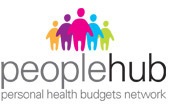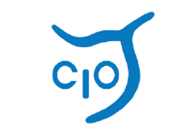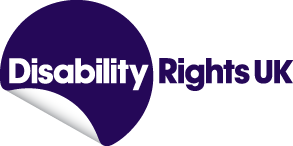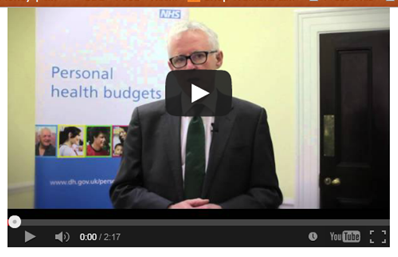This section is aimed to be a resource for anyone who uses NHS Services in Knowsley, carers and all professionals working in Healthcare services.
‘The voluntary sector plays an important role in the effective delivery of personal health budgets – from offering advice & advocacy to providing services such as brokerage and direct payment support to individuals’
NHS England – PHB Support Team
It is well known that people are now living longer and with more complex health needs. Seventy per cent of the health service budget is now spent on people with long-term conditions and it has been shown that population-based approaches do not always address individual needs: one size most definitely does not fit all. People have also long been calling for more choice and control over their care and support.
Empowering people to make choices and tailor their healthcare is fundamental to the changes the NHS is seeking to make over the next few years, as outlined in the recently published Next Steps on the NHS Five Year Forward View. Integrated Personal Commissioning and personal health budgets can provide this more personalised approach and deliver empowerment. They enable the NHS to better respond to people for whom traditional healthcare services do not work well – particularly for people with high, ongoing care and support needs. They also can help commissioners and providers unlock more creative and effective care solutions that deliver better health outcomes, as well as more sustainable health services which effectively join up to other supporting services.
A personal health budget is an amount of money to support the identified healthcare and wellbeing needs of an individual, which is planned and agreed between the individual, or their representative, and the local clinical commissioning group (CCG). It isn’t new money, but a different way of spending health funding to meet the needs of an individual
Personal health budgets are one way to give people with long term health conditions and disabilities more choice and control over the money spent on meeting their health and wellbeing needs. They may be used for a range of things to meet agreed health and wellbeing outcomes, including therapies, personal care and equipment which are set out in the local offer.
Personalised care and support planning is essential to making personal health budgets work well. A care and support plan helps people to identify their health and wellbeing goals in conjunction with their local NHS team, and sets out how the budget will be spent to enable them to reach their goals and keep healthy and safe.
A person with a personal health budget (or their representative) should:
- Be central in developing their personalised care and support plan and agree who is involved.
- Be able to agree the health and wellbeing outcomes they want to achieve, together with relevant health, education and social care professionals.
- Get an upfront indication of how much money they have available for healthcare and support.
- Have enough money in the budget to meet the health and wellbeing needs and outcomes agreed in the personalised care and support plan.
- Have the option to manage the money as a direct payment, a notional budget, a third party budget or a mix of these approaches.
- Be able to use the money to meet their outcomes in ways and at times that make sense to them, as agreed in their personalised care and support plan.
Personal Health Budgets Support Service – Our Offer
From point of referral, KDC offers a full end-to-end, bespoke Personal Health Budget Service which is personalised to the individual and their family.
The Service includes all aspects of support that will enable people to effectively use their personal health budget (including ‘notional’ budgets) to meet their continuing healthcare needs, . Each element can be delivered as an individual component or can be combined together to make up a package of support required. Read our leaflet for more information.
Why KDC?
We believe personal health budgets are not just another new project – they are a whole new way of thinking and behaving. Our senior managers are committed to the development of personal health budgets and we have a key leader who ‘champions’ personal health budgets and helps ensure that the people working to make them happen locally get the support they need.
At KDC we are committed to ensuring that people can access personal health budgets fairly. We have ways for people from different backgrounds and cultures to go through the process of getting a personal health budget – so that it really works for them. We are working hard to talk to people who might not usually get the services and support they need.
We make sure we find people who might get left out because they are harder to get information to. We have positive relationships with people who already use personal health budgets and are willing to tell their stories to professionals and to the public. Through our information provision, people know quickly what having a personal health budget means and what they can expect; we work with organisations to develop good information, advice and support for people about personal health budgets. We listen to what people say about how this works so we can make it better.
Our Credentials
During 2014 KDC was one of twenty eight Third Sector organisations selected to take part in an NHS England programme to help ‘gear up’ for personal health budgets. During 2014/15 we participated in a national development programme which has equipped us with the knowledge and expertise to inform our local community about personal health budgets.
To help people and families get a good sense of what should be expected from the NHS and furnish them with the information they need to help them get a personal health budget, KDC has developed a range of information materials, advice and guidance in a variety of media and formats, newsletters and Information booklet co-produced with the NHS(E) PHB team and In- Control. We continue to follow this up with awareness-raising with the public, healthcare professionals including the local NHS team, social workers, commissioners and local partner agencies and community groups such as the Knowsley Carers, Healthwatch and the Knowsley ULO.
At the end of June 2015, our lead for personal health budgets completed a 2 day specialist training programme aimed at accelerating the delivery of Personal Health Budgets in England,. Commissioned by NHS England Personal Health Budgets, Purple and Cheshire Centre for Independent Living for senior managers of Disabled People’s User-Led Organisations that were positioned to develop Personal Health Budget services locally.
Positive working relationships have been formed with key healthcare professionals in Knowsley CCG and we were asked to contribute to the CCG ‘Markers of Progress’ September 2015 submission to the Department of Health. We have formed a positive connections with the Patient and Public Involvement Lay Representative on the CCG Board. In August 2015 we were invited to attend a workshop with the NHS England Personal Health Budgets Team on designing on-going support for the voluntary and community sector.
In October 2015 we were invited by NHS England to an annual conference to bring together all the Third Sector organisations that participated in the ‘Gearing up for Personal Health Budgets’ development work where KDC’s work, including examples of good practice was showcased.
In May 2016 NHS England invited senior CCG leaders and representatives from the voluntary and community sector to the leadership event “Realising the Five Year Forward View: Driving Personalisation through Personal Health Budgets” in London. KDC received a personal invitation to present a reflection on our contribution to the development of Personal Health Budgets. The conference explored the opportunities for personal health budgets to solve some of the problems facing our health service, while offering real choice and control to disabled people and those managing long-term conditions. The conference also provided an opportunity to find out more about additional resources and support that are available for CCGs developing plans to expand their local offer.
Key workers at KDC have been trained in Support Planning by Caroline Tomlinson from In-Control. In terms of experience of practice in Support Brokerage. Andy Gilbert was the co-founder and joint chair of the
National Brokerage Network from 2005 – 2008 and worked as an independent Support Broker from 2004 – 2008 prior to commencing work in Knowsley with KMBC as Development Officer – Self Directed Support.
Did you know?
Since April 2014, everyone receiving NHS Continuing Healthcare has the right to ask for a personal health budget, including a direct payment. This includes a duty to inform people that they are eligible and provide information, advice and support. For example; what is the eligibility criteria, local offer, process and support available. Click on the brochure for more details
From 1 October 2014 this was strengthened and this group can benefit from a ‘right to have’ a personal health budget. Knowsley CCG has legal duties relating to NHS Continuing Healthcare rights and personal health budgets. These include having a duty to arrange for the provision of a personal health budget, including a direct payment, a duty to publicise and promote them, a duty to provide information, advice and support, and a duty to consider requests for personal health budgets.
How can a personal health budget be paid?
Once a care and support plan has been agreed, the money in a personal health budget can be managed in a number of different ways:
- Notional budget. No money changes hands. The individual is informed how much money is available and talks to their local NHS team about the different ways to spend that money on meeting their needs. The NHS team will then arrange the agreed care and support.
- Real budget held by a third party. A different organisation or trust holds the money for the individual and supports them to decide what they need. After this has been agreed with the individual and their local CCG, the organisation then buys the care and support. KDC offers a Managed Accounts service and will be able to provide this arrangement.
- Direct payment for healthcare. The individual receives the money directly to buy the care and support that they have decided they need, in agreement with their local NHS team. They have to show what the money has been spent on, but the individual, or their representative, buys and manages the services themselves. KDC provides the Direct Payments support service in Knowsley
What about personal budgets for children and families?
Following the introduction of the Children & Families Act 2014 we now have Education, Health and Care (EHC) plans, which replaced special educational needs statements and Learning Difficulty Assessments (LDAs). These plans formed part of a new approach (Special Educational Needs and Disability Reforms) that seeks to join up support across education, health and care.
Since September 2014 children and young people assessed as needing an EHC plan have the option of a personal budget that will bring together money from education, health and social care into a single budget. Not all children will be eligible for direct payments and you should consult with your health and/or care representative to find out if your child is eligible.
For more information on the SEND reforms in Knowsley click here.
Interested?
For more information about Personal Health Budgets, contact Andy Gilbert at KDC on 0151 480 8873. Andy can talk to you over the telephone, send you information by post, email or come out and visit you for further discussion
Keep coming back for updates!
Time for a new ‘personal’ relationship between the NHS and the people it supports
James Sanderson, NHS England’s Director of Personalisation and Choice, makes the case for giving people more choice and control over their health and wellbeing – not only giving them better health outcomes but also addressing some of the critical issues facing the wider NHS system
Three Years on: Stories from the pilot programme
Norman Lamb talks about personal health budgets
View peoples personal stories
Personal Health Budgets in Action
Personal Stories from people with lived experience
‘This is not a story of suffering, it is a story of triumph’
Mary’s story from the personal health budgets pilot
Roger’s story from the personal health budgets pilot
Anita and Trevor’s story from the personal health budgets pilot
David from Tees – his story from the personal health budgets pilot
Dan’s story from the personal health budgets pilot
Nikki’s story from the personal health budgets pilot
Useful Guidance and publications
Personal Health Budget and Mental Health
Personal Health Budgets in end of life care
Personal Health Budgets for People with Learning Disabilities
Gearing Up for Personal Health Budgets – Evaluation Report by In Control & NHS England October 2015
Easy read guide for Personal Health Budgets
Guidance on the “right to have ” a Personal Health Budget in Adult NHS Continuing Healthcare and children and Young People’s Continuing Care
Guidance on Direct Payments for Healthcare: Understanding the Regulations
NHS PHB Guide: Options for Managing the money
Think local act personal – PHB: including people with learning disabilities
NHS PHB guide; Budget setting for NHS Continuing Healthcare
Personal Assistants – Delegation, Training and Accountability
NHS PHB guide: ensuring equal access
PHB Guide: Third party budgets
Links to Useful Websites
 Peoplehub is a personal health budgets network. A national network working to develop personal health budgets in the health and care sectors. It is a network of people who have direct experience of Personal Health Budgets. There is specific experience in peer networks locally and nationally. http://www.peoplehub.org.uk/
Peoplehub is a personal health budgets network. A national network working to develop personal health budgets in the health and care sectors. It is a network of people who have direct experience of Personal Health Budgets. There is specific experience in peer networks locally and nationally. http://www.peoplehub.org.uk/
 In-Control is a national charity which operates as an extensive community network that is working for change and to provide people with the knowledge, power and tools to control their support. A range of on-line resources, webinars and materials is available. In-Control carries out the annual Personal Outcome Evaluation Tool (POET) Survey for PHBs. http://www.in-control.org.uk/
In-Control is a national charity which operates as an extensive community network that is working for change and to provide people with the knowledge, power and tools to control their support. A range of on-line resources, webinars and materials is available. In-Control carries out the annual Personal Outcome Evaluation Tool (POET) Survey for PHBs. http://www.in-control.org.uk/
 Think Local Act Personal (TLAP) is a national partnership of 30 organisations transforming health and care through personalisation and community-based support. TLAP supports a range of projects and events as well as helpful resources. http://www.thinklocalactpersonal.org.uk/
Think Local Act Personal (TLAP) is a national partnership of 30 organisations transforming health and care through personalisation and community-based support. TLAP supports a range of projects and events as well as helpful resources. http://www.thinklocalactpersonal.org.uk/

Disability tax guide is a website that provides resources and information for those in receipt of direct payments who operate a payroll for their care workers and personal assistants. http://disabilitytaxguide.org.uk/
 Disability Rights UK aims to promote “meaningful” independent living for disabled people as well as providing support for carers. They produce a range of fact sheets and information. http://www.disabilityrightsuk.org/
Disability Rights UK aims to promote “meaningful” independent living for disabled people as well as providing support for carers. They produce a range of fact sheets and information. http://www.disabilityrightsuk.org/
 Skills for Care produce a helpful toolkit on Employing a Personal Assistant which is available on line. https://www.kdc-connections.org.uk/toolkit/
Skills for Care produce a helpful toolkit on Employing a Personal Assistant which is available on line. https://www.kdc-connections.org.uk/toolkit/



